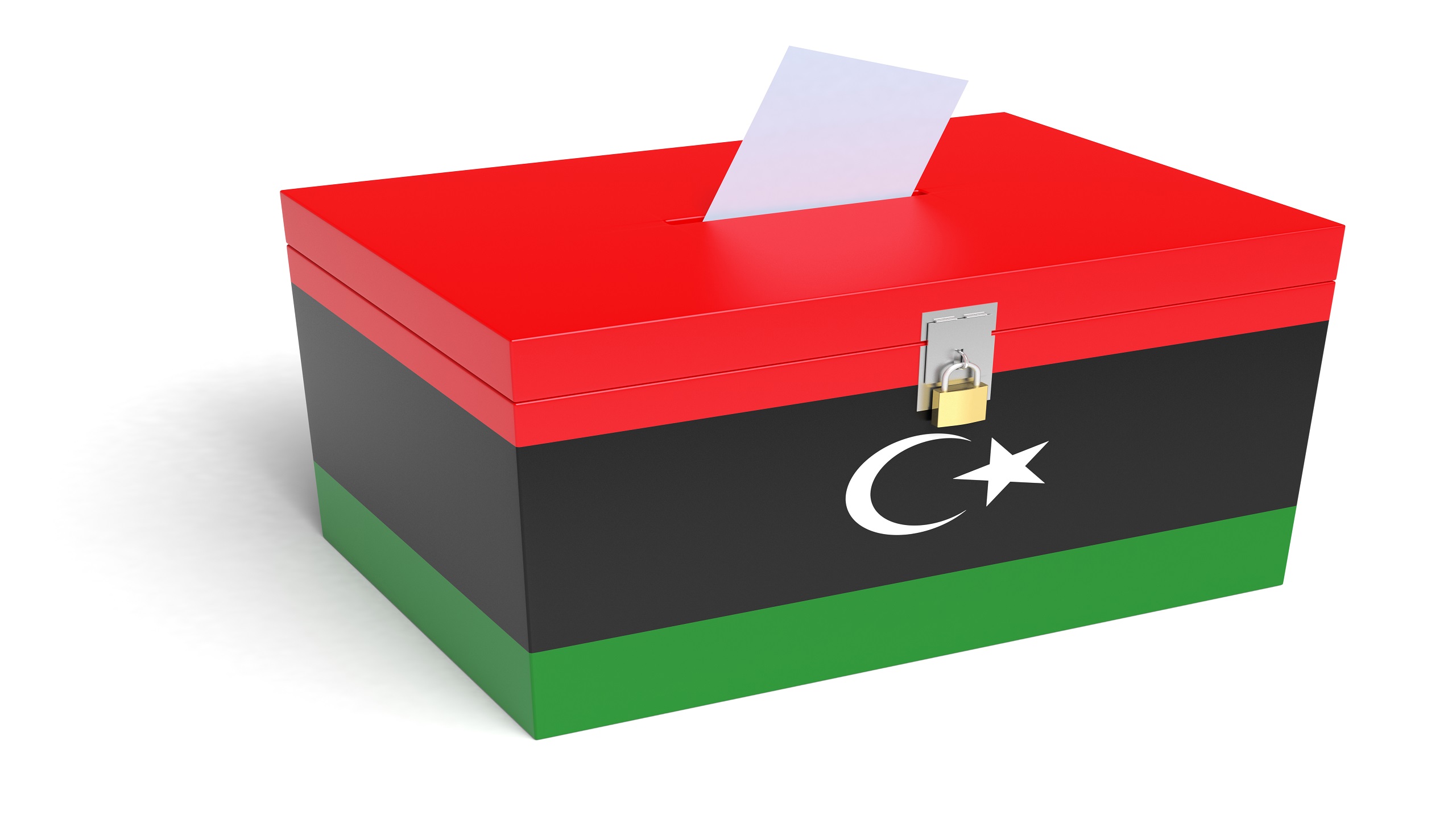Top Middle East News Stories of 2021
January
Gulf Normalization
After boycotting Doha for more than three years, Gulf leaders signed a landmark agreement to end their blockade and ease the Qatar diplomatic crisis.
Saudi Arabia, the United Arab Emirates, Bahrain and Egypt fully resumed ties with Qatar on January 5 after three and a half years during which they accused it of “sponsoring terrorism” because of its alleged rapprochement with Iran and its support for the Muslim Brotherhood movement. Riyadh view Tehran and the Muslim Brotherhood as threats to their rule and they had demanded Qatar distance itself from both.
Saudi Crown Prince Mohammed bin Salman and Qatari Emir Tamim bin Hamad Al Thani sealed the reconciliation by embracing each other, and since then the so-called Arab Quartet has resumed relations with the small Gulf country, bringing an end to the crisis.
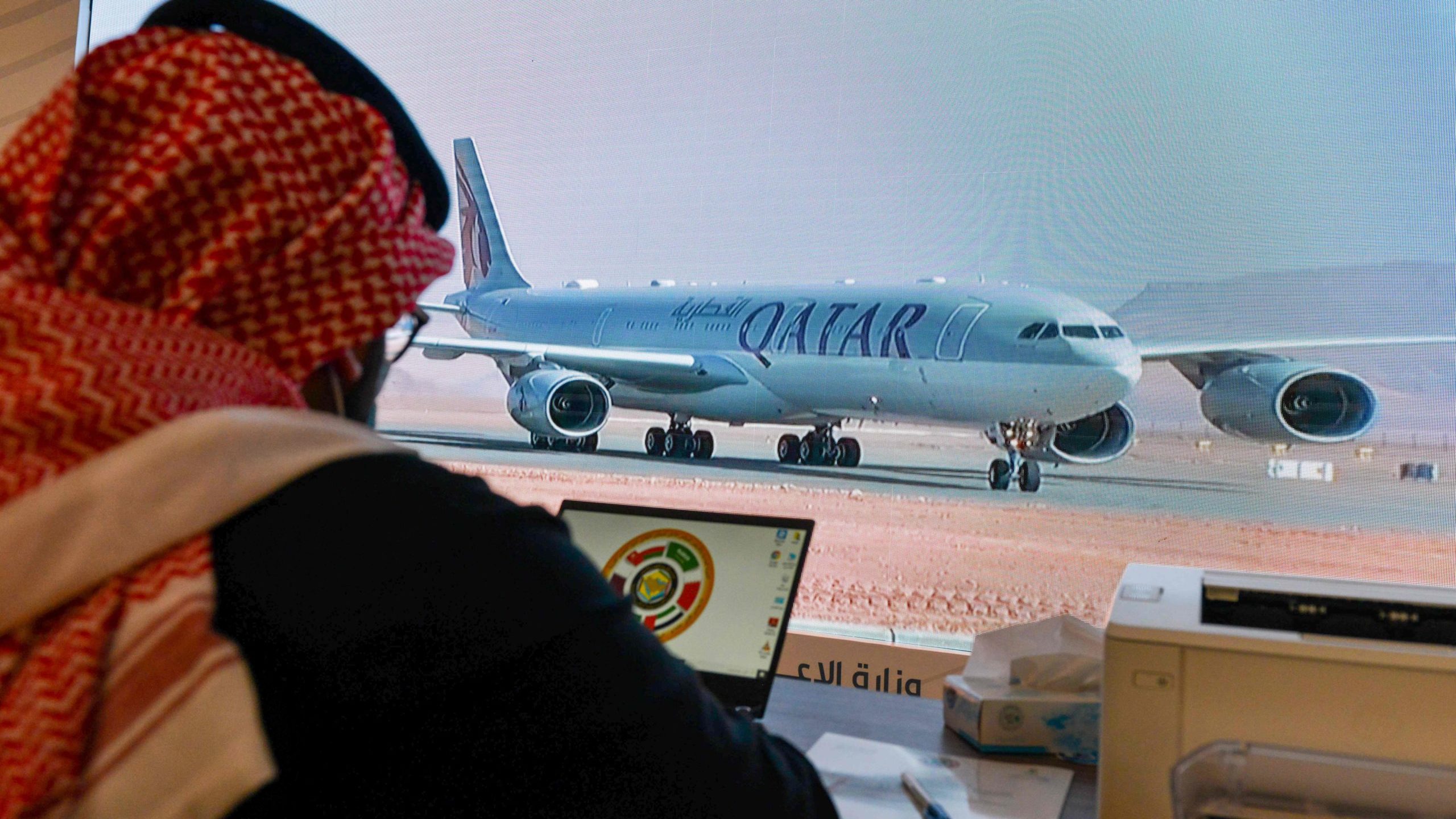
A journalist watches the arrival of the Qatar envoy ahead of the 41st Gulf Cooperation Council (GCC) summit in the city of AlUla in northwestern Saudi Arabia, Jan. 5, 2021. (Fayez Nureldine/AFP via Getty Images)
March
Israel Election Finally Yields a New Government
The Israeli election in March produced what three previous rounds in the previous two years had failed to achieve: a new government headed by someone other than Binyamin Netanyahu. Naftali Bennett, leader of the right-wing Yamina party, succeeded in forming a governing coalition composed of several parties with radically opposed ideologies. On June 2, a coalition agreement was signed by Yesh Atid, Blue and White, Yamina, Labor, Yisrael Beitenu, New Hope, Meretz and the United Arab List. The government is set to have two prime ministers, first Bennett and then Yesh Atid boss Yair Lapid, during its term in office.
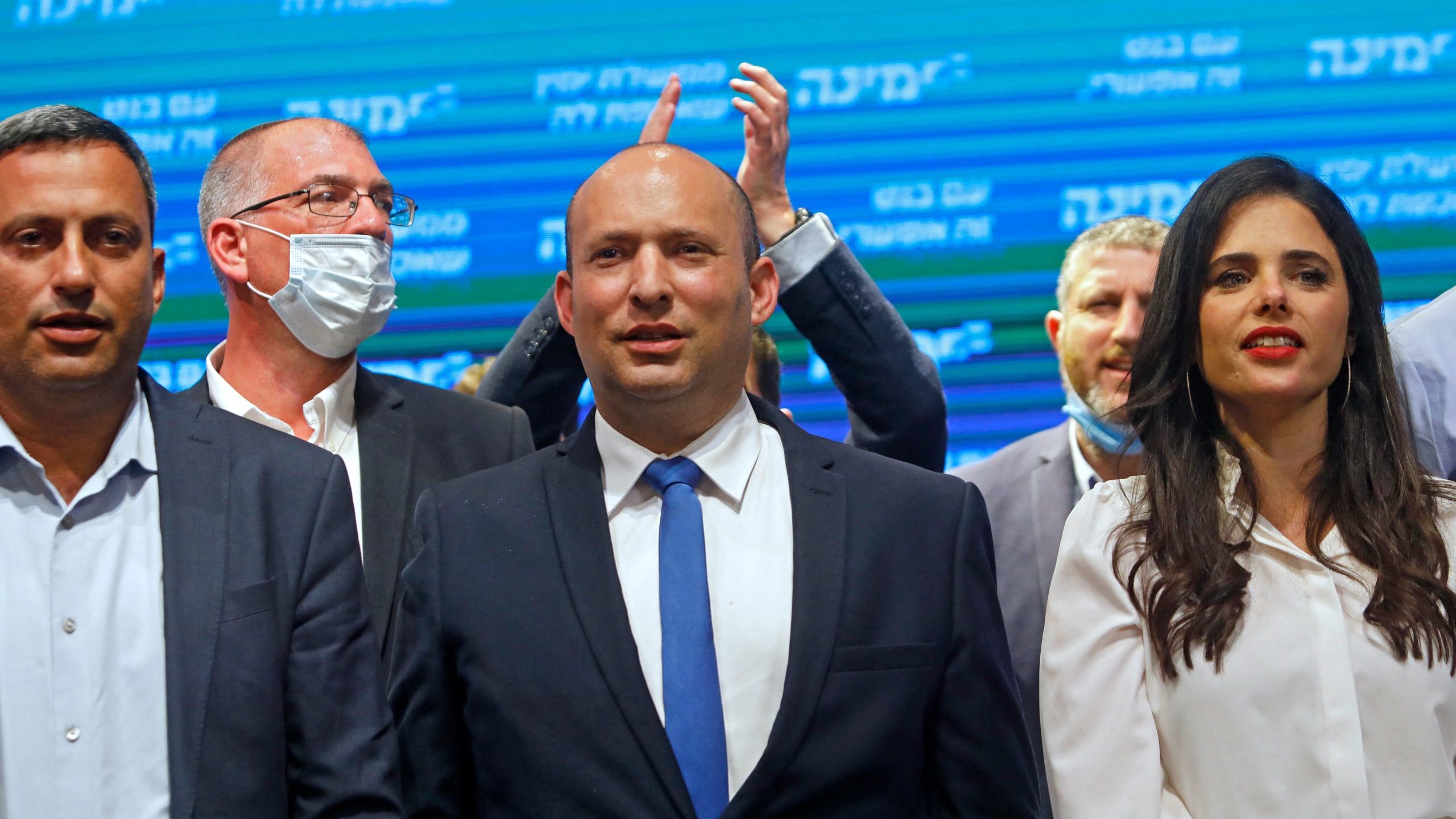
Yamina party head Naftali Bennett (C), accompanied by candidate Ayelet Shaked (R), addresses supporters at his party’s campaign headquarters in Tel Aviv early on March 24, 2021, after voting ends in Israel’s fourth national election in two years. (Gil Cohen-Magen/AFP via Getty Images)
March
Suez Canal Obstruction
On March 28, at least 369 ships were left waiting, unable to pass through the canal. This blocked an estimated $9.6 billion worth of trade.
The Panamanian-flagged Ever Given, one of the largest container ships in the world, got stuck in the Suez Canal blocking maritime traffic for six days, causing delays in the transport of goods and millions of dollars in losses in the artificial waterway, through which around 10% of world trade passes.
The Egyptian authorities held the vessel in the canal until July 7, until an agreement was reached with the owner of the mammoth vessel.
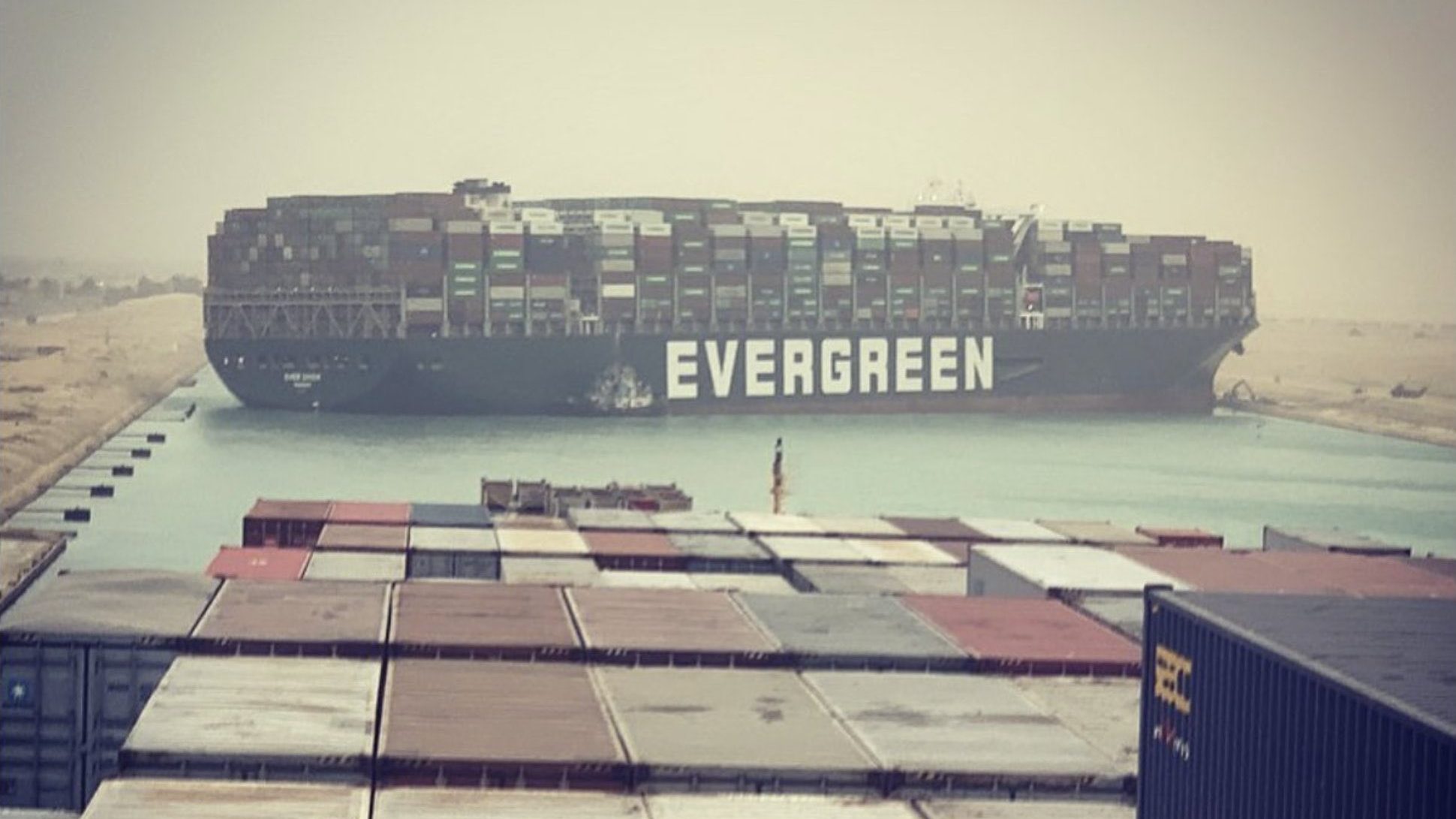
Ever Given container ship, operated by the Taiwanese shipping company Evergreen, runs aground in the Suez Canal on March 23, 2021. (Twitter)
March
First Visit by a Pope to Iraq
Pope Francis made a historic three-day visit to Iraq on March 5-7, the first by a pontiff to the country. He brought a message of support for the Christian minority in the Arab country, which has suffered in recent years from the violence of the Islamic State terrorist group.
In addition to Baghdad, Francis visited the cities of Erbil, Mosul, Qaraqosh in the Nineveh Governorate, and the Plain of Ur, where tradition has it that Abraham, prophet of the three monotheistic religions, was born, and met with Iraq’s highest Shiite Muslim authority, Ayatollah Ali al-Sistani.
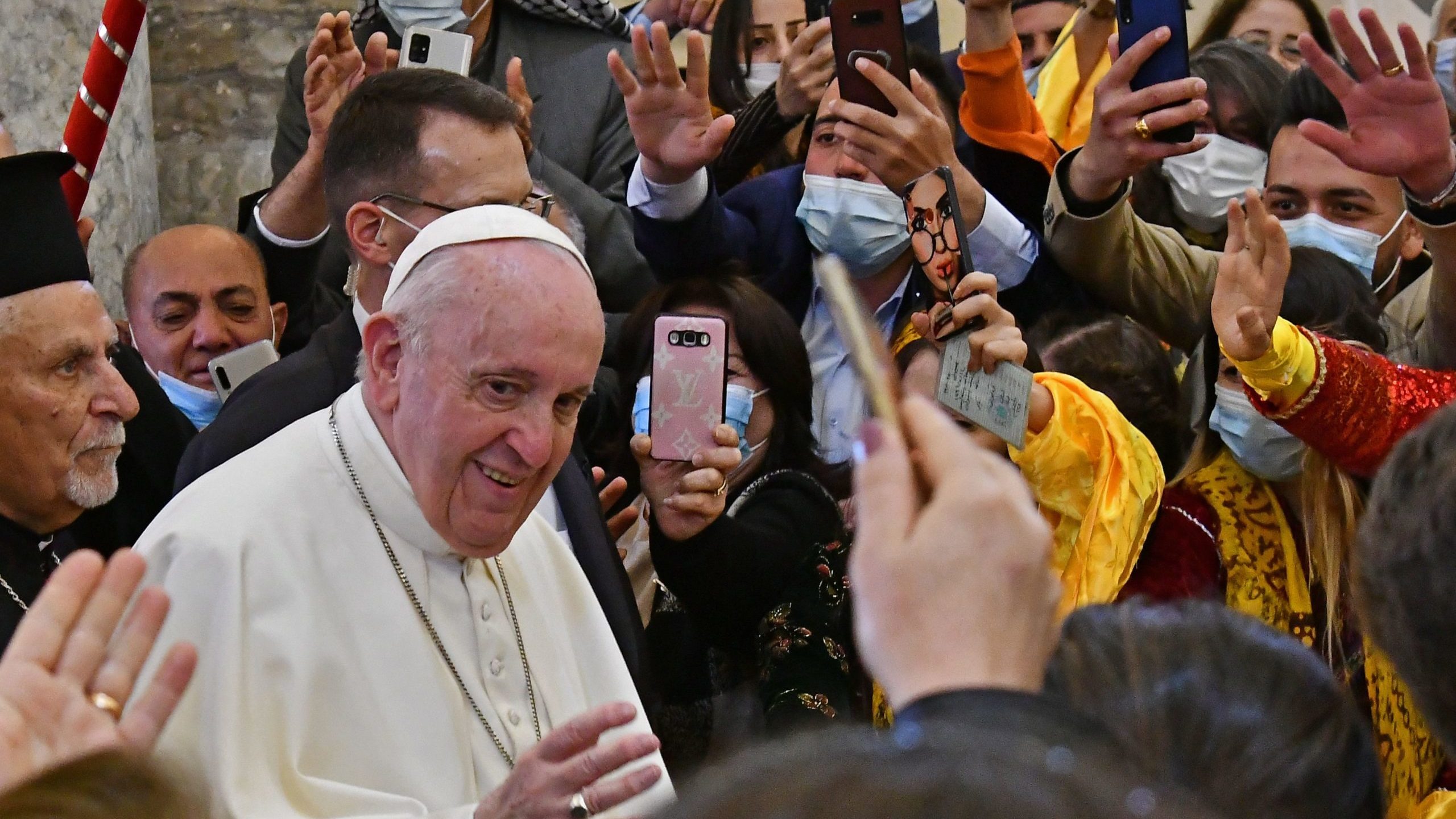
Pope Francis is greeted by people as he arrives at the Syriac Catholic Church of the Immaculate Conception, in the predominantly Christian town of Qaraqosh (Bakhdida), in Nineveh province, some 30 kilometers from Iraq’s northern city of Mosul, March 7, 2021. (Vincenzo Pinto /AFP via Getty Images)
May
Another Israel-Gaza War
A fierce 11-day war between Hamas and Israel killed more than 250 people in the Gaza Strip and left thousands without homes. Rocket fire from Gaza killed 13 people in Israel.
Give the gift of hope
We practice what we preach:
accurate, fearless journalism. But we can't do it alone.
- On the ground in Gaza, Syria, Israel, Egypt, Pakistan, and more
- Our program trained more than 100 journalists
- Calling out fake news and reporting real facts
- On the ground in Gaza, Syria, Israel, Egypt, Pakistan, and more
- Our program trained more than 100 journalists
- Calling out fake news and reporting real facts
Join us.
Support The Media Line. Save democracy.
The fighting erupted on May 10, when Hamas, the Islamist group that governs the Gaza Strip, fired long-range rockets toward Jerusalem. The barrage came after days of clashes between Palestinian protesters and Israeli police at the Al-Aqsa Mosque compound/Temple Mount. Palestinians say the war was sparked by Israeli police’s heavy-handed treatment of Muslim worshipers at the compound, and the threat of eviction of dozens of Palestinians in favor of Jewish property claimants in Sheikh Jarrah in east Jerusalem.
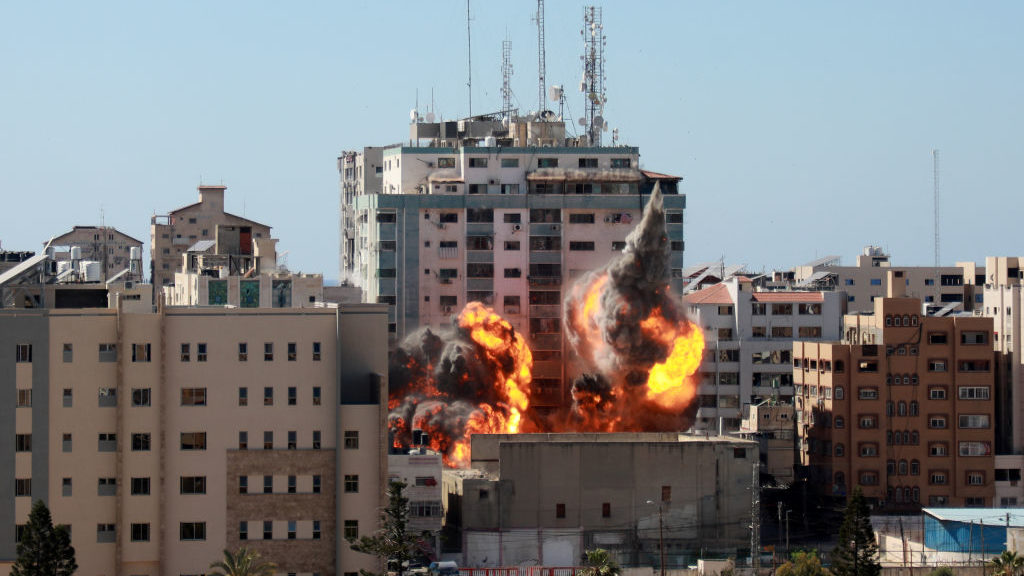
A ball of fire erupts from the al-Jalaa building in Gaza City as it is destroyed in an Israeli airstrike on May 15, 2021. The building included offices of Al Jazeera TV and the Associated Press news agency, (Majdi Fathi/NurPhoto via Getty Images)
June
New President in Iran
In Iran, Iran’s hard-liners claimed a landslide victory in presidential elections. Supreme Leader Ayatollah Ali Khamenei and his armed loyalists in the Islamic Revolutionary Guard Corps masterminded the electoral victory of Ebrahim Raisi.
In November, Iran returned to nuclear negotiations in Vienna after the new Biden administration expressed willingness to restore the landmark 2015 agreement.
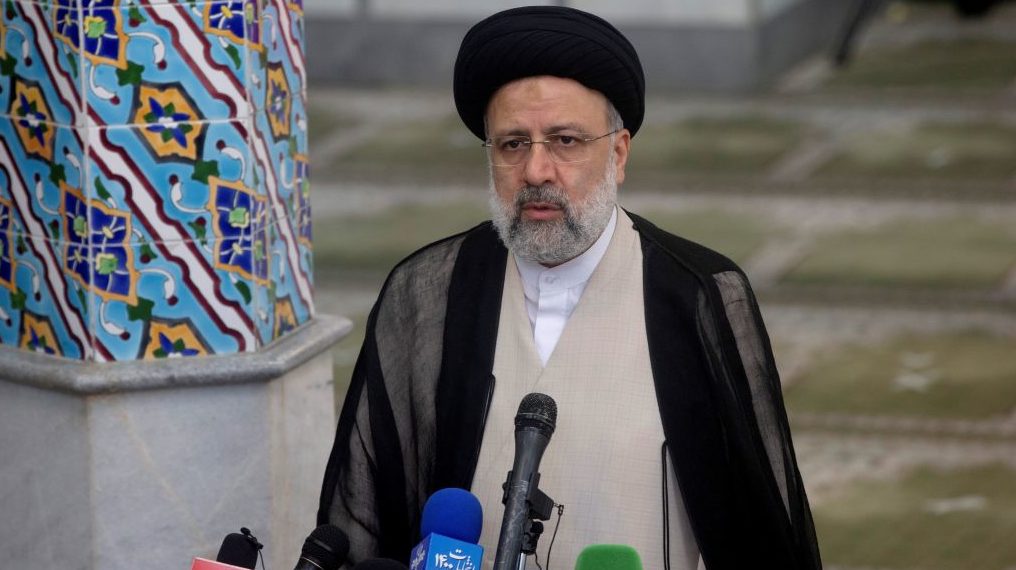
Ebrahim Raisi speaks after casting his ballot at a polling station in Tehran, Iran, June 18, 2021. Ebrahim Raisi won Iran’s presidential race with over 60% of votes. (Ahmad Halabisaz/Xinhua via Getty Images)
June
Netanyahu is Gone
A political bomb in Israel, after its longest-serving prime minister, Binyamin Netanyahu, lost his position as head of government following an unprecedented four back-to-back inconclusive elections.
Netanyahu faces various corruption charges, even seeing an indictment in early 2020, but never showed willingness to quit his job.
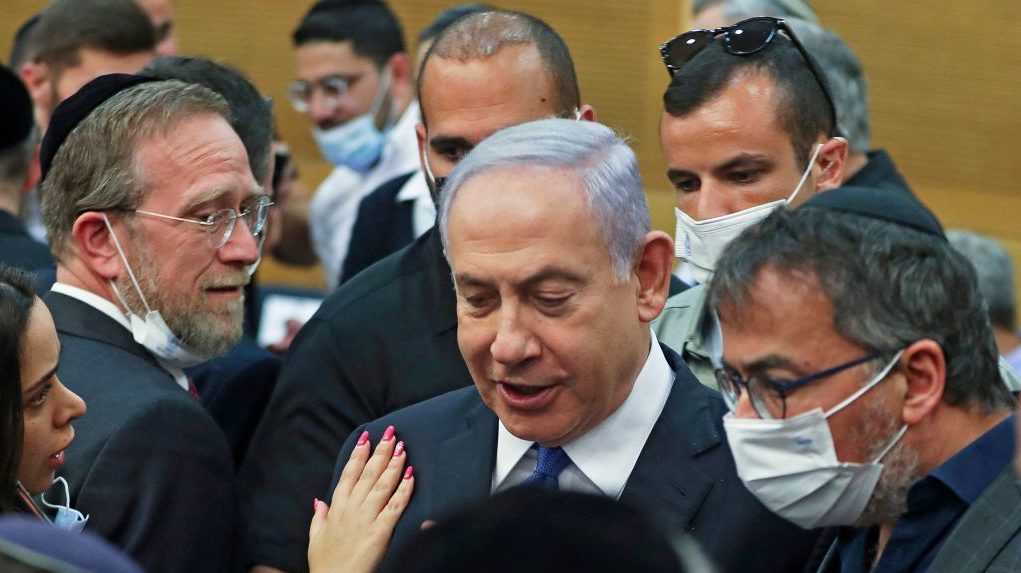
Israeli Prime Minister Binyamin Netanyahu attends a special session of the Knesset, Israel’s parliament, on June 2, 2021. (Ronen Zvulun/POOL/AFP via Getty Images)
July
Tunisian President Dissolves Parliament
Tunisian President Kais Saied announced on July 25 that he would resort to Article 80 of the 2014 constitution, which authorizes him to take “exceptional measures” in the event of an “imminent danger” to the country. Accordingly, he announced the dismissal of the prime minister and the freezing of parliament.
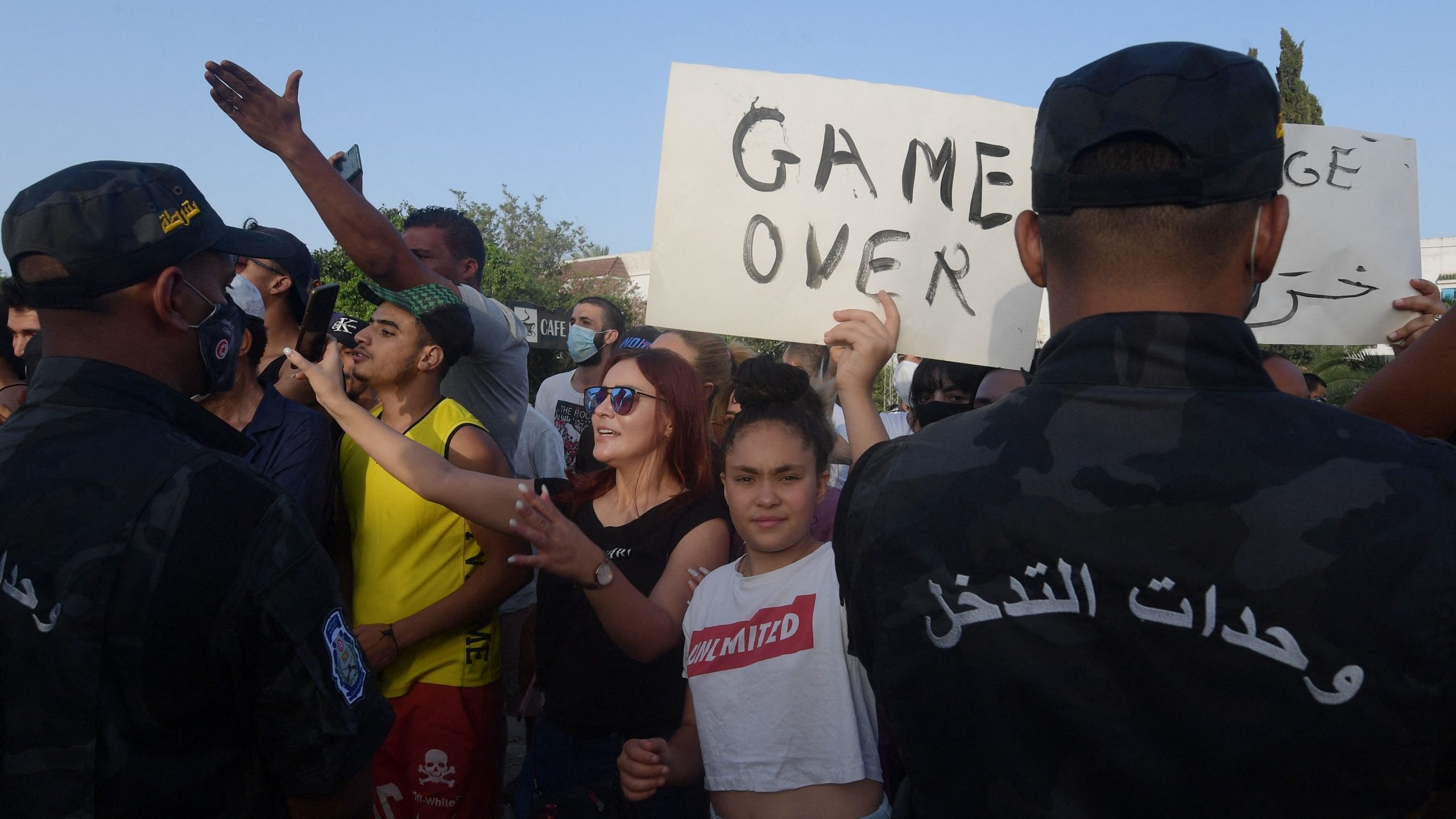
Supporters of Tunisian President Kais Saied chant slogans denouncing Ennahda party leader Rached Ghannouchi in front of the parliament, in the capital Tunis, July 26, 2021, following the president’s suspension of parliament and dismissal of the prime minister. (Fethi Belaid/AFP via Getty Images)
August
Taliban Retake Control of Afghanistan
After two decades of military involvement in Afghanistan in what was America’s longest war, the Taliban retook control of Afghanistan amid a chaotic US withdrawal. On August 15, Taliban fighters stormed the capital Kabul, shortly after the president of Afghanistan and his close advisers fled. Washington claims that its goal wasn’t to get rid of the Taliban but rather to eliminate al-Qaida.
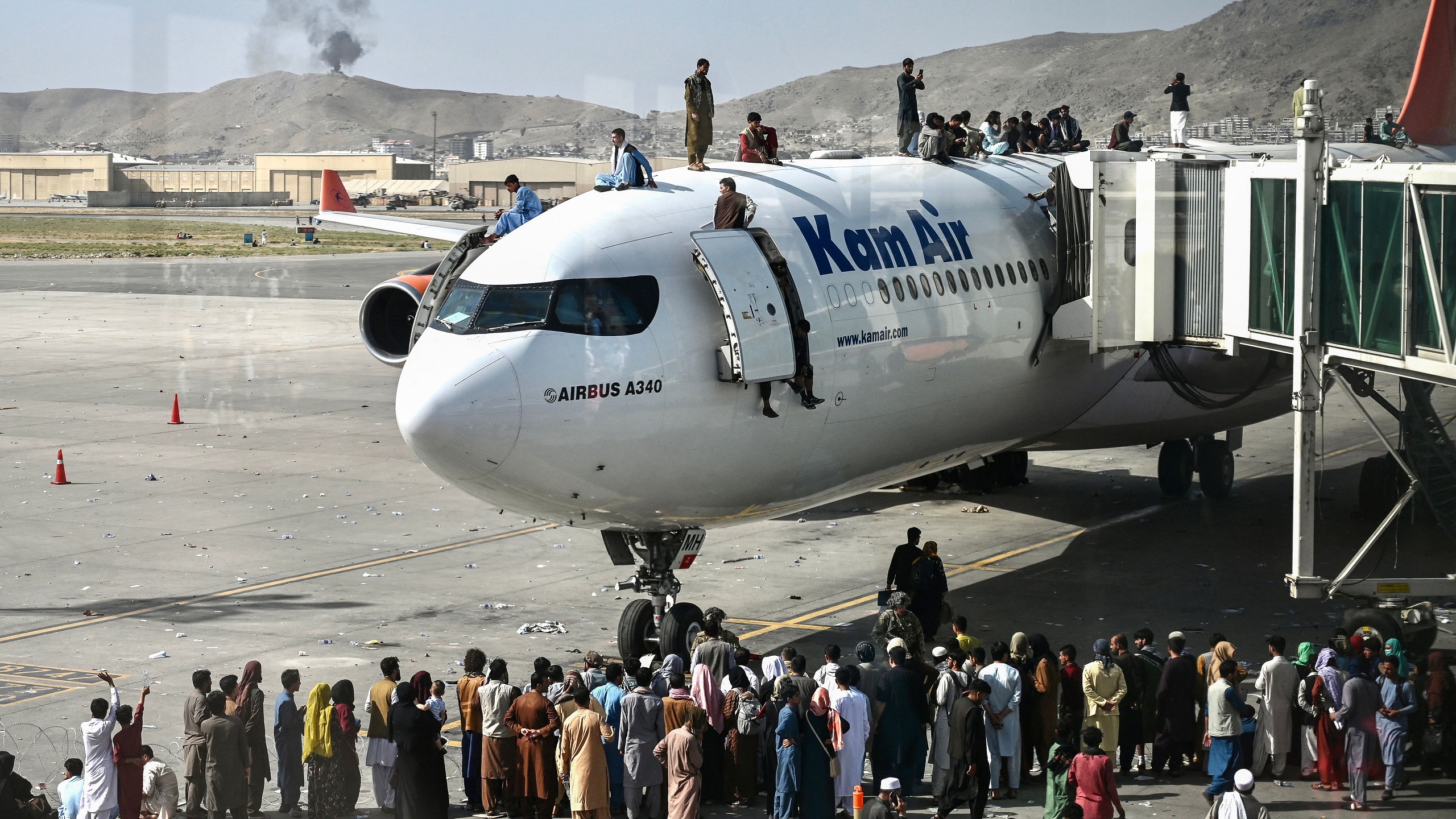
Afghans climb atop a plane as they wait at the Kabul airport in Kabul on Aug. 16, 2021, after a stunningly swift end to Afghanistan’s 20-year war, as thousands of people mobbed the city’s airport trying to flee the group’s feared hard-line brand of Islamist rule. (Wakil Kohsar/AFP via Getty Images)
August
Diplomatic Relations Ruptured Between Morocco and Algeria
The Algerian government cut off diplomatic ties with its neighbor Morocco on August 24 after what it called the kingdom’s “hostile actions.” Algiers accused Morocco of conspiring against it with Israel, and hinted that Rabat was behind the fires that hit Algeria. For its part, Morocco “categorically rejected the false, rather absurd justifications.”
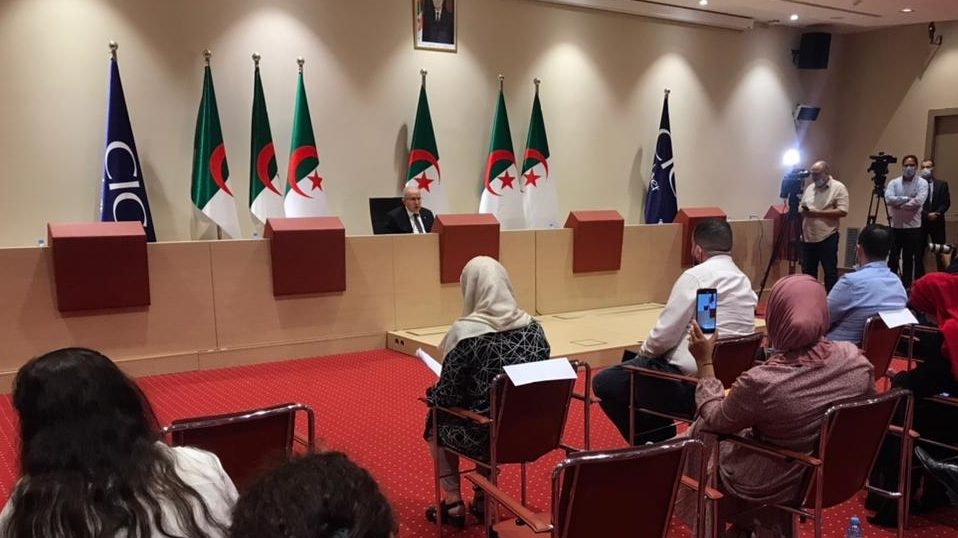
Algerian Foreign Minister Ramtane Lamamra makes a speech as he holds a press conference in Algiers, Algeria on Aug. 24, 2021. Algeria on Tuesday decided to sever relations with its neighbor Morocco, accusing Rabat of having “hostile tendencies” towards it. (Hamza Zait/Anadolu Agency via Getty Images)
October
Coup d’état in Sudan
The Sudanese military staged a coup on October 25, arresting dozens of government ministers, including Prime Minister Abdalla Hamdok, who was placed under house arrest for days and later released following US pressure.
Although the military subsequently restored Hamdok to office, protests continue in Sudan with demonstrators demanding full civilian rule.
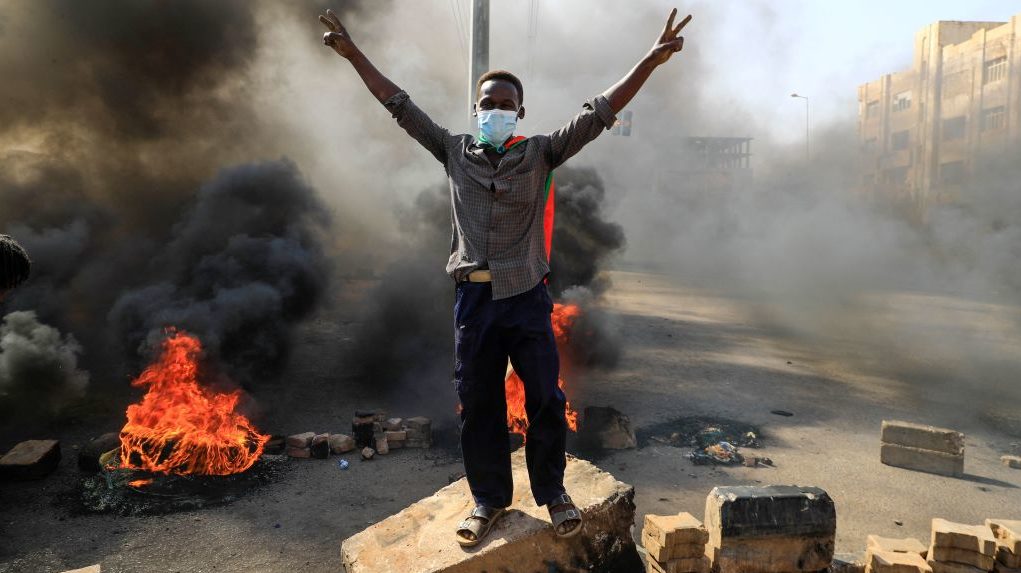
Sudanese protesters burn tires to block a road in the capital Khartoum, to denounce overnight detentions by the army of members of Sudan’s government, in an apparant coup on October 25, 2021. (AFP via Getty Images)
October
Expo 2020 Opens in Dubai
The 2020 World Expo opened its doors in Dubai on October 1, a year later than planned due to the coronavirus pandemic, and became the first event of its kind in the Arab world and in a Muslim country.
Dubai has invested billions of dollars to host the Expo, an event that is expected to attract some $33.4 billion and create nearly one million jobs.
November
Lebanon and the Gulf Crisis
Remarks on the Saudi intervention in Yemen’s civil war by Lebanese Information Minister George Kordahi sparked a row with Gulf countries that exacerbated the Land of the Cedars’ political and economic crises.
Kordahi resigned in early December.
The crisis threatened trade and financial aid that Lebanon desperately needs.
Saudi Arabia expelled the Lebanese ambassador, recalled its envoy to Beirut and banned imports from Lebanon.
Kordahi made the comments last August before he became a cabinet member in September; he defended Yemen’s Iran-backed Houthi rebels, who receive training from Hizbullah. He said Yemen was subjected to foreign aggression, an apparent reference to Saudi Arabia.
Gulf allies have responded by recalling their ambassadors from Lebanon and expelling Beirut’s envoys. The Arab League has expressed concern over the rapid deterioration of relations.
Kordahi is a member of a small Christian party allied with the Shiite Hizbullah movement.
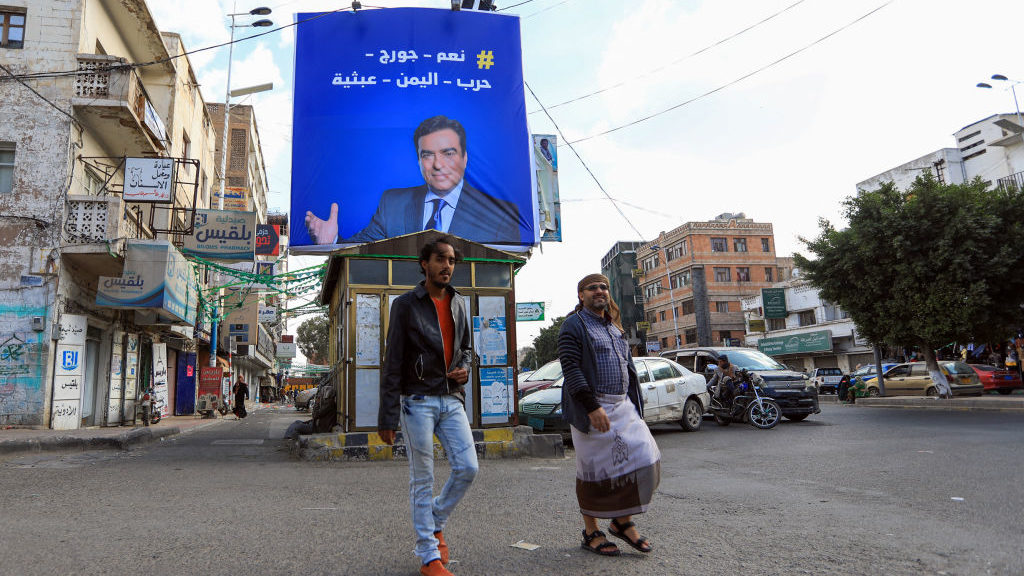
A portrait of Lebanese Information Minister George Kordahi is displayed on a billboard in the Yemeni capital Sanaa on Oct. 31, 2021. Yemen’s Houthi rebels on Sunday put up posters in support of Kordahi whose criticism of the Saudi-led war in Yemen sparked a diplomatic row between Lebanon and Gulf states. (Mohammed Huwais/AFP via Getty Images)
November
Libya Election Delayed
Libya’s election commission postponed the country’s long-awaited election due to inadequate preparation.
After years of fierce fighting between the UN-backed Tripoli government and warlord Khalifa Haftar’s forces, both sides agreed in March to establish a unity government, which will theoretically oversee an election and a transition to democratic rule.




